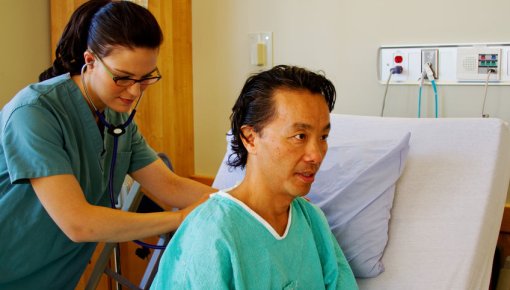At the hospital

Certain treatments and surgical procedures can only be carried out in a hospital, where a team of doctors, nurses and other healthcare professionals can provide more intensive care. Hospitals have a wide range of special equipment and medical experts from different fields.
In Germany, treatment in a hospital usually involves staying there for several days. This is called inpatient treatment (stationär). If you're due to stay at a hospital, your doctor will give you a referral slip (Einweisungsschein) to turn in at the hospital. Your family doctor or specialist will usually recommend a suitable hospital in your area. But you're free to choose a hospital yourself.
Specific procedures and treatments may have to be carried out by specialists who have more experience in that area – or with special equipment, like machines for dialysis. Not every hospital can provide these. You can find out what treatments different hospitals in Germany offer with the help of search engines like the Bundes-Klinik-Atlas.
You will usually go to the hospital for one or more appointments before having the actual treatment – for example, for an examination or pre-surgery consultation. If the treatment is urgent, your doctor's practice will make the hospital appointment for you. Otherwise, you will have to arrange it yourself.
If you have public (statutory) health insurance, your treatment costs will only be covered at hospitals that have contracts with public health insurers. Most hospitals in Germany do. But private hospitals only admit patients who have private health insurance or are willing to pay for the treatment themselves.
